 Travel
Travel  Travel
Travel  Miscellaneous
Miscellaneous 10 Modern Marriage Rituals Born from Corporate Branding
 Weird Stuff
Weird Stuff Ten Bizarre Visions of 2026 from Fiction
 Weird Stuff
Weird Stuff The 10 Unluckiest Days from Around the World
 Food
Food 10 Modern Delicacies That Started as Poverty Rations
 Movies and TV
Movies and TV 10 Shared TV Universes You’ve Likely Forgotten About
 Weird Stuff
Weird Stuff 10 of History’s Greatest Pranks & Hoaxes
 Miscellaneous
Miscellaneous 10 LEGO Facts That Will Toy with Your Mind
 Misconceptions
Misconceptions 10 Widespread Historical Myths and the Texts That Started Them
 Crime
Crime 10 Incredible Big-Time Art Fraudsters
 Travel
Travel 10 Beautiful Travel Destinations (That Will Kill You)
 Miscellaneous
Miscellaneous 10 Modern Marriage Rituals Born from Corporate Branding
 Weird Stuff
Weird Stuff Ten Bizarre Visions of 2026 from Fiction
Who's Behind Listverse?

Jamie Frater
Head Editor
Jamie founded Listverse due to an insatiable desire to share fascinating, obscure, and bizarre facts. He has been a guest speaker on numerous national radio and television stations and is a five time published author.
More About Us Weird Stuff
Weird Stuff The 10 Unluckiest Days from Around the World
 Food
Food 10 Modern Delicacies That Started as Poverty Rations
 Movies and TV
Movies and TV 10 Shared TV Universes You’ve Likely Forgotten About
 Weird Stuff
Weird Stuff 10 of History’s Greatest Pranks & Hoaxes
 Miscellaneous
Miscellaneous 10 LEGO Facts That Will Toy with Your Mind
 Misconceptions
Misconceptions 10 Widespread Historical Myths and the Texts That Started Them
 Crime
Crime 10 Incredible Big-Time Art Fraudsters
10 Oldest Surviving Documents Of Their Type
Writing things down is one of the most important innovations in human history. As well as being able to spread ideas accurately across distance and time, writing also provided the records needed for law to function. Documents have literally changed the world, and some of them have survived for hundreds or even thousands of years. Every type of document provides a unique window into our shared heritage as human beings, in ways that are both surprising and fascinating.
10Oldest International Treaty
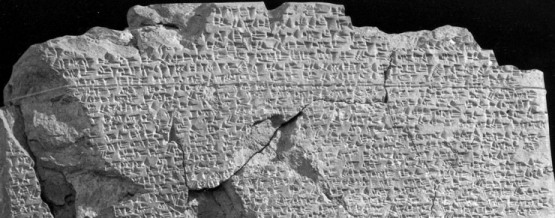
The Hittites and the Egyptians were among the earliest great civilizations. They had an uneasy relationship and both wielded a relatively large amount of military power for the time. One of their key sticking points was the city of Kadesh, located in what is now Syria. In the 13th century BC the Hittites marched on the city, which was under Egyptian control, and took it, giving them a threatening position over important trade routes. Egypt’s Pharaoh Ramesses II (later known as Ramesses the Great) marched with 20,000 of his own men to take it back. The ensuing battle was a draw.
Both sides realized that neither of them was likely to gain a decisive victory, so sought another solution. The result was a peace agreement, signed around 1269 BC, which is the oldest surviving treaty in existence. A copy is on display in the United Nations, because they’re really into treaties there. A translation of both the Hittite version and the Egyptian version is available. The treaty promises everlasting peace, created by the leaders “in order not to permit hostilities to arise between them, forever. There are clauses agreeing that should an Egyptian flee to the lands of the Hittites (or vice versa) they will be returned to their homeland, making it the oldest extradition treaty as well. The countries also agree to send troops to one another’s aid should a third party attack.
While there is a lot in the treaty we’d consider at the height of diplomatic relations, few people would nowadays be comfortable with the promise to send troops to squelch any uprisings from within a neighbor’s country: “If Reamasesa, king of the country of Egypt, rises in anger against his citizens after they have committed a wrong against him… the king of the country of Hatti, my brother, has to send his troops and his chariots and they have to exterminate all those against.” The promise is made in the other direction as well.
9Oldest Surviving Medical Document
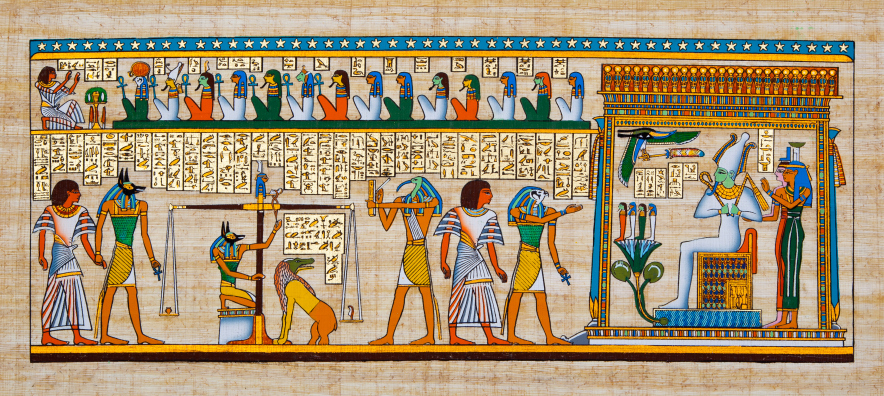
Whilst humans have dabbled in healthcare of some sort since our earliest days, the first record we have of specific medical advice is in the form of an Egyptian papyrus. This document is 4,000 years old and is known as the Kahun Gynaecological Papyrus. It was discovered in 1889 and contains information on the diagnosis and treatment of a number of ailments.
While some of the meaning may have been lost over the millennia, Egyptian women seem to have suffered from some unusual conditions, like the smell of roasting while their womb wandered. The Egyptians liked to blame the womb for a whole bunch of stuff that probably wasn’t related. For example, “a woman whose eyes are aching till she cannot see, on top of aches in her neck” is diagnosed as having “discharges of the womb in her eyes.” The recommended treatment is fumigation of the womb (ouch). Toothache? “It is toothache of the womb” and more fumigation is needed. If your ears hurt so much you can’t make out the words you’re hearing, that’s also the womb. It’s really nothing but trouble.
8Oldest Surviving Religious Texts
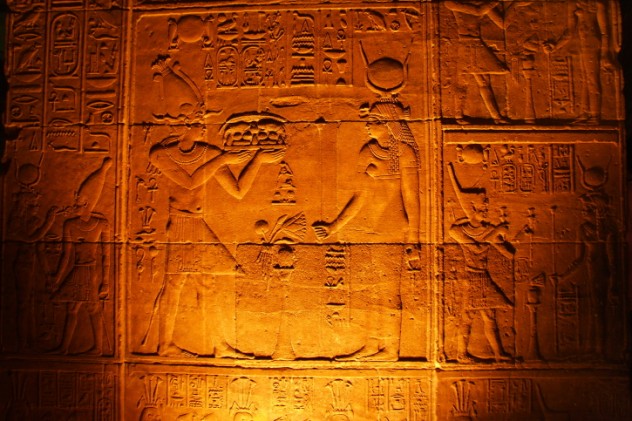
The pyramids of Egypt are amazing structures built by the greatest craftsmen of their era (not slaves and definitely not aliens). They were built as a resting place for Egypt’s rulers, and the walls were lined with stories and spells designed to help the soul on its journey to the afterlife. The oldest of these inscriptions comes from the pyramids of Unas and are the oldest surviving religious texts in the world.
The texts bring us the earliest description of Osiris, Egypt’s king of the dead. They are written in a way that suggests the words were designed to be chanted, or at least spoken allowed. The description of ascent to the afterlife is rather poetic, comparing spirits to herons, haws, and grasshoppers leaping into the air. A full English translation is available online should you wish to try any of the spells for yourself.
7Oldest Surviving Poem
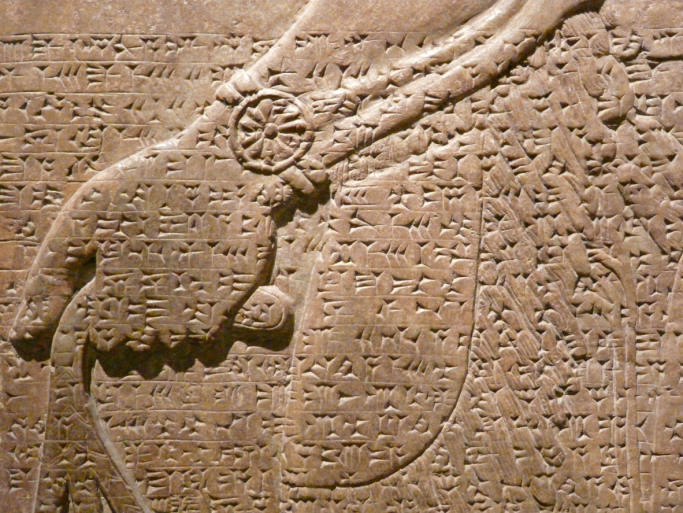
Early literature often came in the form of poetry. Before writing, oral tradition passed on stories through the generations and poetry was an easy way to learn and recite tales. The Epic of Gilgamesh is a contender for the first epic poem. The earliest surviving written versions are dated to around 2,000 BC. There is actually a shorter surviving poem older than that—ancient Sumeria’s Tale of the Shipwrecked Sailor. It’s exactly what the title suggests.
The oldest love poem in the world is only slightly younger. Written on a tablet about the size of a cell phone, the 4,000 year old Sumerian ballad also contains the oldest recorded chat-up line: “You have captivated me, let me stand trembling before you; Bridegroom, I would be taken to the bedchamber.” It seems the last several thousand years has seen the quality of propositions heading in the wrong direction. And on the subject of sex…
6Oldest Depiction Of Sex
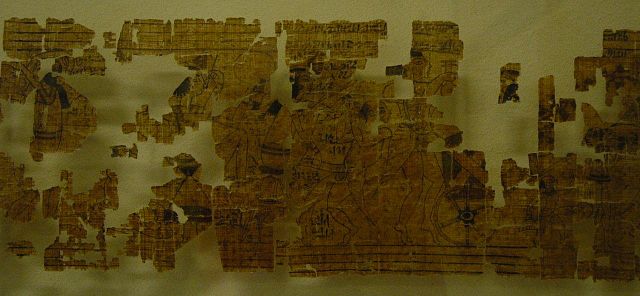
There’s a famous commentary on human sexuality, that “every generation thinks they invented sex.” It’s seen as a mass delusion to avoid having to think about your parents or grandparents going at it (or at least going at it enthusiastically). Yet the Ancient Egyptians have left evidence that they had the whole thing down pretty early on, in the form of the Turin Erotic Papyrus. The document, which is over 3,000 years old, features diagrams of twelve different sexual positions.
Some of the equipment seen scattered around the amorous couples in the pictures has been pretty standard forever, like beer and wine. Other stuff, such as the love rattle or the huge phallus supported by a team of handmaidens, fell out of favor until the Internet came along. The positions fall somewhere between impressively acrobatic and unnervingly ambitious. A man doing a handstand falls into the former category, whereas the man on the ground chasing a woman on a chariot is a definite case of the latter.
5Oldest Message In A Bottle

The message in a bottle has a firm place in our cultural consciousness. The oldest one talked about on the Internet is that of Chunosuke Matsuyama, who supposedly sent out a message in 1784, asking for rescue after he became shipwrecked. The message washed up on a beach in 1935, a little too late. The Internet, however, offers up no images or indication as to where the bottle is now. It’s likely this story is apocryphal—Guinness World Records certainly seems to think so, so the “oldest bottle” title lies elsewhere.
The oldest confirmed message in a bottle ever found is from 1914. It had spent 35,736 days at sea when it was found by Scottish fisherman Andrew Leaper on April 12, 2012. The message had been launched as part of a scientific experiment to map sea currents for Scotland’s Fishery Board. It may be less romantic than the last words of an abandoned sailor (or a lonely British pop star), but it’s at least a bit more useful.
4Oldest Correspondence
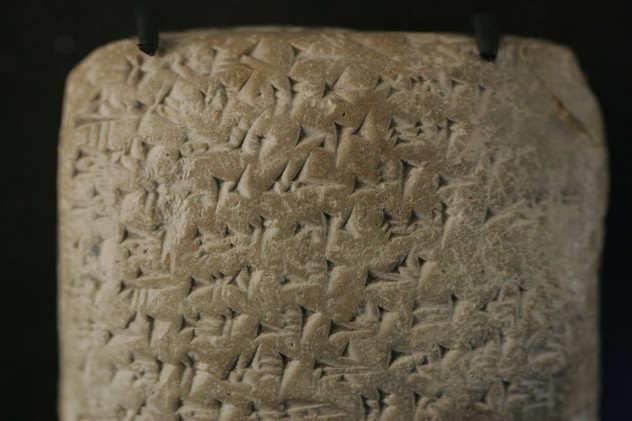
The oldest correspondence ever sent were diplomatic letters between the pharaohs of Egypt and neighboring statesmen. These clay tablets, known as the Amarna letters, were sent in the 14th century BC. Jerusalem’s Canaanite king Abdi-Heba used one letter to ask the pharaoh Akhenaten for military assistance against other city states in the region.
The letters were dug up in 1887 and are now housed in various museums around Europe. One example in the British Museum is from the king of Mitanni, a city state in modern-day Syria. It is addressed to pharaoh Amenhotep III and wishes him and his family well, before saying that a statue of the goddess Ishtar is on its way. The goddess herself had apparently given direct approval.
3Oldest Printed Book Bearing A Date
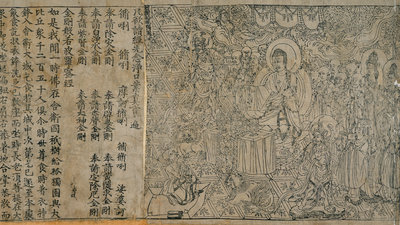
Texts in some Eastern religions such as Buddhism and Hinduism are known as sutras. The best known of these in the West is the Kama Sutra, but it is far from the only one. The oldest complete printed and dated book is a Buddhist text known as the Diamond Sutra, a name apparently suggested by the Buddha himself, as the text is designed to “cut like a diamond blade through worldly illusion to illuminate what is real and everlasting.”
It was found hidden in a cave in 1907 by a British explorer, one of 40,000 documents that had been locked away for around 900 years. The cave in the desert, with its dry air, had helped to preserve the items. The text deals with identity and criticizes the idea that people have an immutable core. The book holds itself in very high regard, quoting the Buddha as saying, “if a good son or good daughter dedicates lifetimes as many as the sands in the River Ganges to charitable acts, and there were another person who memorized as much as one four-line verse of this scripture and taught it to others, the merit of the latter would be by far greater.”
2Oldest Marriage Certificate

The Elephantine Papyri are a collection of documents dated to the 5th Century BC found on the island of Elephantine in the River Nile. At the time a Jewish settlement called Yeb was located there as an Egyptian garrison. Among the various letters and contracts were three marriage certificates, the oldest known to survive.
The contracts appear to have been drawn up in unusual situations. The brides were a slave, a former slave, and a divorcee. The purpose of the documents was to record the economics of the wedding, including the dowry. If the marriage was later dissolved, the wife got to take this along with the possessions she brought with her. One lucky groom was named Ananiah ben Azariah and his bride was a handmaiden called Tamut. The certificate contains sections that have been erased or added to, suggesting last-minute negotiations.
1Oldest Surviving Set Of Laws
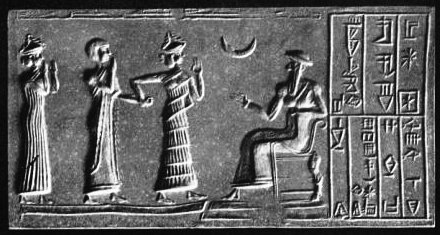
The Codes of Ur Nammu are the oldest laws that we know of, a creation of the Sumerian king of that name. The codes were written around 2,050 BC and covered a wide array of crimes. The punishments set out include a fine of 15 shekels for perjury, compared to a fine of five shekels for raping a slave. Cutting off a man’s foot falls exactly between these two crimes and will set you back 10 shekels.
Ur Nammu’s code also included rules about tax, courtroom procedures, and ceremonial laws. The period when the laws were written was called, “Year Ur-Nammu Made Justice In The Land.” The implementation of laws seems to have worked out fairly well, as the empire prospered under Ur-Nammu’s rules. The rules are imperfect: speaking insolently was punished by having one’s mouth scoured with salt, a law that applied only to slave women. Nevertheless, the idea of a codified set of laws was an important step in humanity’s progress.
+Oldest Newspaper

The world’s first newspaper was launched in Germany in the early 1600s and was snappily called Relation aller Fürnemmen und gedenckwürdigen Historien (Collection of all Distinguished and Commemorable News). There are no surviving copies for the first four years it was published; the earliest copy that exists is from 1609. The papers were published in Strasbourg, a Catholic city, so the protestant Relation published anonymously to avoid given away the printing location.
The oldest surviving English language newspaper was printed in Amsterdam and dated 2 December, 1620. It opened with the line, “new tydings out of Italie are not yet com,” which seems unfortunate. It had no title, as that wasn’t considered particularly important. After all, if there are no other newspapers you don’t need to make yours stand out. The oldest surviving newspaper printed in England (in 1621) was snappily called, “”Corante, or weekely newes from Italy, Germany, Hungary, Poland, Bohemia, France and the Low Countreys.” America didn’t get a home-grown newspaper till 1690.
Alan is a full-time writer who you can pester on Twitter, email, or read his blog (which he promises to update more often) at skepticalnumber.com.








